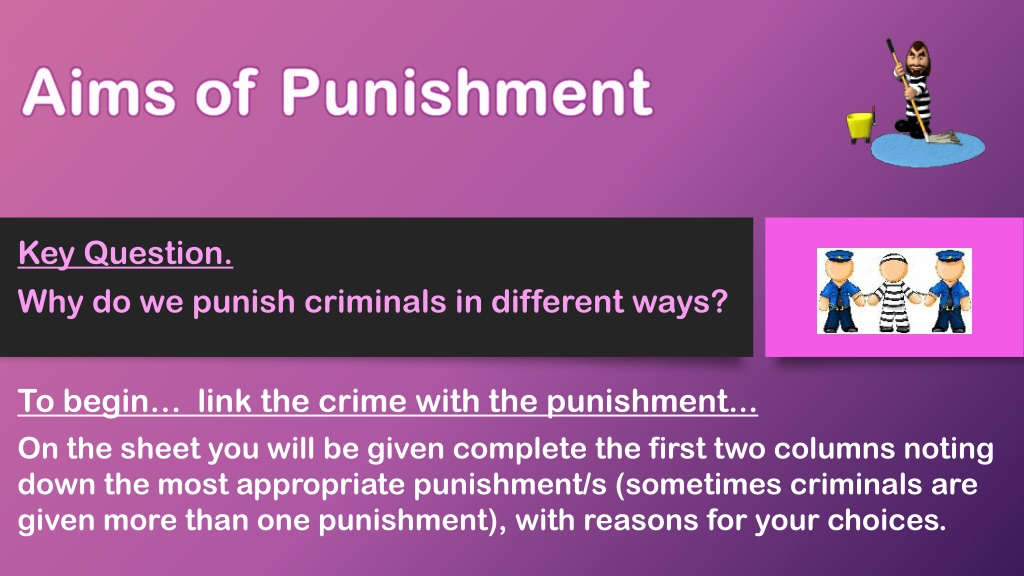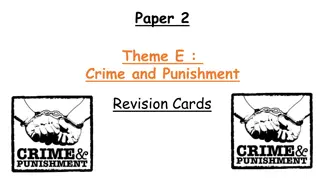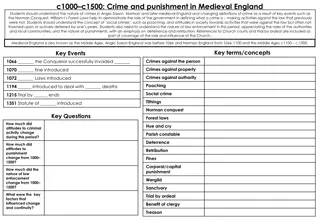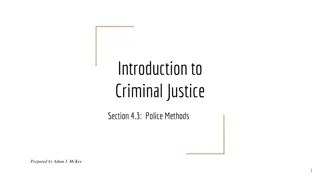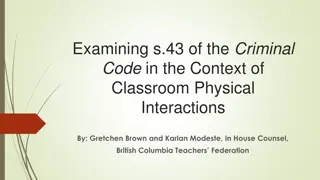Understanding the Aims of Punishment and Evaluating Deterrence as an Effective Aim
Explore the aims of punishment and the reasons behind punishing criminals in different ways through a series of tasks. Match descriptions to aims, identify and explain key aims of punishment, and evaluate the effectiveness of deterrence as a primary aim. Provide reasoned arguments, consider religious and non-religious perspectives, and reach a justified conclusion in your evaluation.
Download Presentation

Please find below an Image/Link to download the presentation.
The content on the website is provided AS IS for your information and personal use only. It may not be sold, licensed, or shared on other websites without obtaining consent from the author. Download presentation by click this link. If you encounter any issues during the download, it is possible that the publisher has removed the file from their server.
E N D
Presentation Transcript
Aims of Punishment Aims of Punishment Key Question. Why do we punish criminals in different ways? To begin link the crime with the punishment... On the sheet you will be given complete the first two columns noting down the most appropriate punishment/s (sometimes criminals are given more than one punishment), with reasons for your choices.
Aims of Punishment Read, match and respond... Read the information on the cards about the aims of punishment. Match the descriptions to the Aims . Use the pictures you will be given to identify and explain five of the aims of punishment.
Aims of Punishment Aims of Punishment Show understanding and add On the table from your starter task complete the last column adding the aim of punishment that matches the punishment given for the crimes committed. Read and respond... Read the information on the sheet about the aims of punishment. Complete the tasks.
Aims of Punishment Aims of Punishment Evaluate... The most effective aim of punishment is deterrence . Evaluate this statement. In your answer, you: Should give reasoned arguments in support of this statement Should give reasoned arguments to support a different point of view Should refer to religious arguments May refer non-religious arguments Should reach a justified conclusion. (12 marks)
